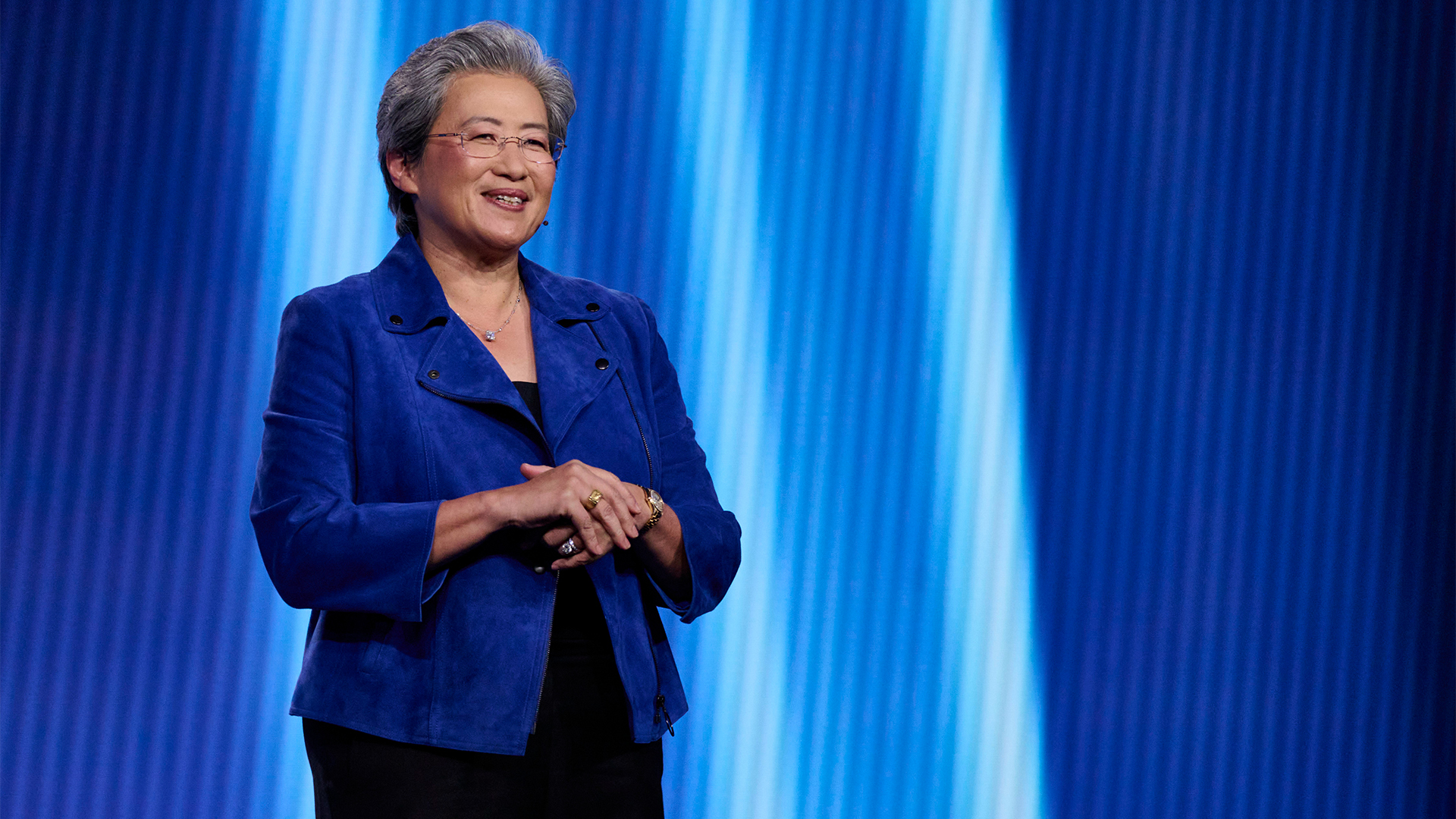Why IT recruiters should look for experts from the military sector
While they may not have traditional certifications, veterans can bring with them a wealth of knowledge and experience

Sign up today and you will receive a free copy of our Future Focus 2025 report - the leading guidance on AI, cybersecurity and other IT challenges as per 700+ senior executives
You are now subscribed
Your newsletter sign-up was successful
Demand for cyber security and IT specialists has never been greater and although graduate numbers in these subjects have increased, 70% of tech companies are experiencing difficulties in recruiting and retaining IT capable employees. Indeed, across many functional areas including technology, science, engineering and mathematics, there’s a huge technical skills gap and organisations are struggling to find talent.
According to the government’s Quantifying the UK Data Skills Gap report, around a quarter of businesses said that, of graduates who work with data, 18% needed to develop their basic skills whilst 23% needed to develop their communication skills. Even more concerning, one in three IT employees failed to complete their six-month probationary period. This skills crunch has led more employers and recruitment agents to rethink their usual talent pipelines.
Each year, around 15, 000 people leave the armed forces, including cyber engineers and information warriors from the Army’s Royal Signal Corps, the RAF, and the Navy’s Joint Cyber Unit. While many go on to work at GCHQ in Cheltenham and the Corsham Computer Centre Ministry of Defence base, some instead decide to move into civilian employment.
James Murphy, director of TechVets, a not-for-profit cyber employment charity, says his organisation alone “supports a community of 3,000-plus service veterans who are all enthusiastic about technology and cyber security careers”.
The combination of high demand and a supply crunch among traditional candidates for IT roles has led an increasing number of cyber employers and specialist recruitment agencies to fish in the constantly replenishing pool of IT specialists leaving the military.
There’s a wide range of experience on offer, too. George Patterson, MD of Oxford based cyber veterans recruitment agency Arrowforth, says potential recruits include “those finishing minimum engagements (three to four years), those midway through their careers, to those who served 20-plus years and have come to the end of their time in the military. The average length of service is nine years”.
A different set of skills
These military personnel have received rigorous and high-level technical training in cyber security and IT work. Many veterans have also honed their specialised skills during one of the most complex and operationally challenging postings in Iraq and Afghanistan. Military leavers are self-motivated problem solvers with multiple transferable skills.
Sign up today and you will receive a free copy of our Future Focus 2025 report - the leading guidance on AI, cybersecurity and other IT challenges as per 700+ senior executives
According to Veterans Work, Recognising the potential of ex-service personnel, a study conducted by Deloitte, many of these potential recruits also have the kind of ‘soft’ skills that are often said to be lacking in more traditional IT candidates. For example, according to the report, they may be better at initiative-taking, teamwork, time management, and communication.
“[Veterans] are the best of breed and have had a considerable investment in their technical skills to degree level and beyond,” says Murphy.
Military recruits with proven skills may also reduce employers’ recruitment costs. According to Patterson: “One in three civilian job candidates will not see out their six-month probation (at an average £24,000 cost) whilst a service leaver stays on average for 24 months.”
By way of explanation, he adds: “Service veterans tend to be loyal to employers, are looking for job stability and new challenges. They have a terrific opportunity to leverage their skills in making a successful second career to complement their first.”
Who is employing military veterans?
The demand for cyber and IT skills, and the annual stream of available service personnel, has encouraged startup recruitment firms to focus exclusively on supplying ex-service personnel to civilian employers. The bulk of the recruitment sector has yet to tap into the service leaver segment, since it is still an immature sector of the recruiting market, outside of the defence sector.
RELATED RESOURCE

How to plan for endpoint security against ever-evolving cyber threats
Safeguard your devices, data, and reputation
Major firms that are now focussing on recruiting military veterans include Amazon, Barclays Bank, FDM Group, Leidos, Network Rail and Vodafone. In fact, veterans can be found on a range of complex projects including HS2, Crossrail and NHS digitisation work.
Former members of the armed forces are now to be found in a wide range of roles, including network specialists, IT help desk technicians, cyber security, the cloud and DevOps. It can be a lucrative change of career as well. According to Murphy, TechVets “is currently supporting veterans into cyber security or technology roles every month with an average salary of between £40,000 and £50,000.”
Recruitment challenges in civvy street
Unfortunately for military veterans seeking work in the civilian labour market, their core competence, skills, experience, and personal qualities are rarely accompanied by the standard qualifications demanded by most civilian HR departments.
Coupled with the contemporary lack of knowledge and familiarity with the military sector in this country, this is a major bar to post-service civilian employment. Even when veterans are taken on by civilian employers, they often receive less than the market rate due to their perceived lack of industry experience. Yet, as Murphy states, “many veterans have a decade or more professional experience focused entirely on operational delivery.”
It’s a problem that TechVets, among others, hopes to address, both by raising awareness of the IT and soft skills that military-leavers possess, and by offering peer-to-peer support to the veterans themselves.
This, Murphy says, “can help veterans recognise where their transferable skills lie and … translate them into a non-Military context, helping them maximise their chances of being successful in the recruitment process”.
Demand for cyber security and tech skills is expected to increase year-on-year. Likewise experienced and highly skilled tech veterans are becoming available and interested in civilian employment. As the corporate and public sector’s experience with employing ex-military personnel widens and deepens, future ex-military personnel should find it easier to start a second career.
-
 Veeam ramps up growth plans with trio of leadership hires
Veeam ramps up growth plans with trio of leadership hiresNews The data resilience vendor has reshaped its senior leadership team to deepen partner engagement and streamline customer success in the AI era
-
 Lloyds Banking Group wants to train every employee in AI by the end of this year – here's how it plans to do it
Lloyds Banking Group wants to train every employee in AI by the end of this year – here's how it plans to do itNews The new AI Academy from Lloyds Banking Group looks to upskill staff, drive AI use, and improve customer service
-
 Lisa Su says AI is changing AMD’s hiring strategy – but not for the reason you might think
Lisa Su says AI is changing AMD’s hiring strategy – but not for the reason you might thinkNews AMD CEO Lisa Su has revealed AI is directly influencing recruitment practices at the chip maker but, unlike some tech firms, it’s led to increased headcount.
-
 IDC: The business value of IBM Maximo
IDC: The business value of IBM MaximoWhitepaper Integral to the transformation of asset management
-
 Keeper Security expands federal bench with latest senior hires
Keeper Security expands federal bench with latest senior hiresNews The security vendor has bolstered its federal team to support zero-trust access, operational execution, and government modernization efforts
-
 HackerOne eyes enterprise growth with double C-suite appointment
HackerOne eyes enterprise growth with double C-suite appointmentNews Seasoned industry executives Stephanie Furfaro and Stacy Leidwinger have joined the cyber security vendor’s executive team
-
 Enterprises are cutting back on entry-level roles for AI – and it's going to create a nightmarish future skills shortage
Enterprises are cutting back on entry-level roles for AI – and it's going to create a nightmarish future skills shortageNews AI is eating into graduate jobs, and that brings problems for the internal talent pipeline
-
 Want to keep your job in the AI era? Start retraining now
Want to keep your job in the AI era? Start retraining nowNews Workers face critical decisions over the best way to upskill and retrain in the age of AI

